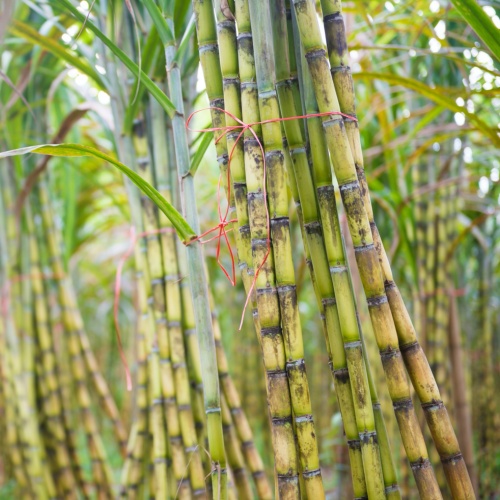Effective Cane Sugar Processing: Optimizing Yield and Pureness
Effective Cane Sugar Processing: Optimizing Yield and Pureness
Blog Article
A Thorough Overview of the Wellness and Economic Implications of Cane Sugar Handling on Regional Areas
Walking stick sugar handling plays a crucial function fit the financial landscape of neighborhood areas, providing job opportunity and boosting secondary industries. Nevertheless, the health and wellness implications related to high sugar intake can not be overlooked, as they add to climbing prices of obesity and diabetes mellitus. This nuanced dynamic invites an essential examination of how areas can maximize financial gains while addressing the pressing health and wellness difficulties they deal with. The exploration of instructional efforts and lasting methods may just hold the key to reconciling these conflicting passions. What methods might communities implement to accomplish this balance?
Economic Advantages of Walking Cane Sugar Processing
Walking cane sugar processing uses substantial economic advantages that extend past the instant agricultural field. The cultivation and processing of sugarcane produce various job possibilities, from farming to manufacturing and circulation. This employment generation not just supports local economies however also fosters community advancement by providing steady earnings sources for family members.
Additionally, the sugar market boosts supplementary services, including transport, devices supply, and packaging services (Cane Sugar Processing). As these fields grow, they add to a much more robust economic structure, enhancing general community strength. The export possibility of processed cane sugar better magnifies economic advantages, positioning regions as competitive players in global markets
Financial investment in modern-day processing facilities can cause increased performance and efficiency, thus decreasing waste and optimizing resource use. This change not just benefits the regional economic situation but likewise supports sustainability initiatives by reducing ecological influences.
Moreover, the revenue produced from cane sugar processing can be reinvested in local framework, education and learning, and healthcare, advertising holistic neighborhood growth. Generally, the economic advantages of walking cane sugar handling are diverse, supplying a structure for enduring prosperity in farming regions.
Health Threats Associated With Sugar Usage
Too much sugar intake postures substantial health threats that necessitate serious focus. High consumption of added sugars, specifically from refined drinks and foods, has actually been linked to many health issues.
Additionally, high sugar intake is linked with heart disease. Elevated blood sugar level levels can bring about insulin resistance, a precursor to various heart-related problems. Additionally, sugar can have detrimental effects on oral health and wellness, resulting in tooth cavities and gum disease, as bacteria in the mouth grow on sugar, producing acids that erode tooth enamel.
In addition, arising research study suggests a potential link between high sugar intake and psychological health and wellness conditions, such as clinical depression and stress and anxiety. As neighborhoods face these health and wellness threats, it ends up being important to advertise understanding and urge healthier nutritional selections. Dealing with sugar consumption is vital not just for individual health however also for the general wellness of regional communities, stressing the requirement for detailed public wellness strategies.
Ecological Impacts of Sugar Manufacturing
Frequently ignored in discussions regarding sugar's ramifications is the substantial ecological impact of sugar manufacturing. The growing of sugarcane usually requires extensive land usage, resulting in deforestation, loss of biodiversity, and disturbance of neighborhood environments. The conversion of forests and marshes right into sugar vineyards can cause environment devastation, threatening many species and changing environmental equilibrium.
Moreover, sugar production is resource-intensive, consuming substantial amounts of water for irrigation. This can result in depletion of local water sources, adversely affecting both agricultural practices and community access to tidy water. Additionally, using chemical fertilizers and pesticides in sugarcane farming can add to soil deterioration and water air pollution, as drainage from these chemicals goes into nearby rivers and lakes, affecting water life and human wellness.
The environmental footprint prolongs to the handling phase, where power intake and waste generation more exacerbate environmental problems. Air pollution from burning sugarcane areas, in addition to greenhouse gas emissions, add to climate modification. Thus, the ecological effects of sugar manufacturing warrant serious factor to consider, prompting stakeholders to adopt more sustainable techniques to reduce these negative impacts on regional ecosystems and communities.
Job Creation and Area Development
The environmental challenges positioned by sugar manufacturing are typically reversed see this site by its potential for economic benefits, particularly in work production and community advancement. The walking cane sugar market functions as a considerable source of work in numerous country locations, giving tasks across different ability levels, from agricultural labor to processing and distribution functions. This work not just supports specific households but also adds to the general economic vigor of neighborhood neighborhoods.
Additionally, the facility of sugar processing centers boosts supplementary services, such as transportation services, devices supply, and maintenance suppliers. As these companies prosper, they create additional tasks and reinforce local economic climates. The profits produced from the sugar market likewise leads to enhanced tax obligation profits, which can be reinvested right into area services such as facilities, education and learning, and health care advancement.
Moreover, the sugar market often engages in community growth campaigns, such as sustaining neighborhood institutions and wellness programs, therefore enhancing the lifestyle for locals. By promoting strong community connections and promoting economic development, the walking stick sugar processing field plays an essential function in uplifting neighborhood populaces, making it a necessary component of sustainable growth strategies in sugar-producing regions.
Balancing Health and Economic Development
In browsing the intricacies of walking stick sugar processing, a crucial challenge lies in balancing health and wellness factors to consider with economic growth. The sugar market significantly adds to neighborhood economies by creating tasks, stimulating relevant markets, and raising tax profits. Nonetheless, the health and wellness effects connected with extreme sugar usage can cause persistent illness such as excessive weight, diabetes mellitus, and cardiovascular problems, which can worry public health systems and diminish workforce performance.

Additionally, governing frameworks can play a pivotal duty in directing industry practices in the direction of even more sustainable and health-conscious strategies. By promoting partnership in between federal government bodies, health and wellness organizations, and the sugar sector, communities can browse the duality of health and economic development, ensuring that the advantages of walking you could look here stick sugar handling are equitably shared while prioritizing public health and wellness.
Conclusion
Finally, the processing of cane sugar presents both significant financial benefits and remarkable wellness dangers for local neighborhoods. While it cultivates job creation and boosts regional advancement, the involved health and wellness issues, particularly relating to obesity and diabetic issues, necessitate a mindful balancing act. By advertising accountable usage and investing in area education and sustainable techniques, it is feasible to optimize economic advantages while reducing unfavorable health and wellness impacts, therefore making certain a much healthier future for local populations.
Additionally, sugar can have harmful effects on dental wellness, resulting in cavities and gum disease, as bacteria in the mouth thrive on sugar, creating acids that erode tooth enamel.
Resolving sugar usage is important not only for individual health and wellness however also for the total health of regional areas, stressing the demand for comprehensive public health approaches.
Frequently neglected in conversations regarding sugar's effects is the substantial ecological influence of sugar production. The health implications connected with excessive sugar consumption can lead to chronic conditions such as excessive weight, diabetic issues, and cardiovascular problems, which can concern public health and wellness systems and lessen workforce efficiency.

Report this page